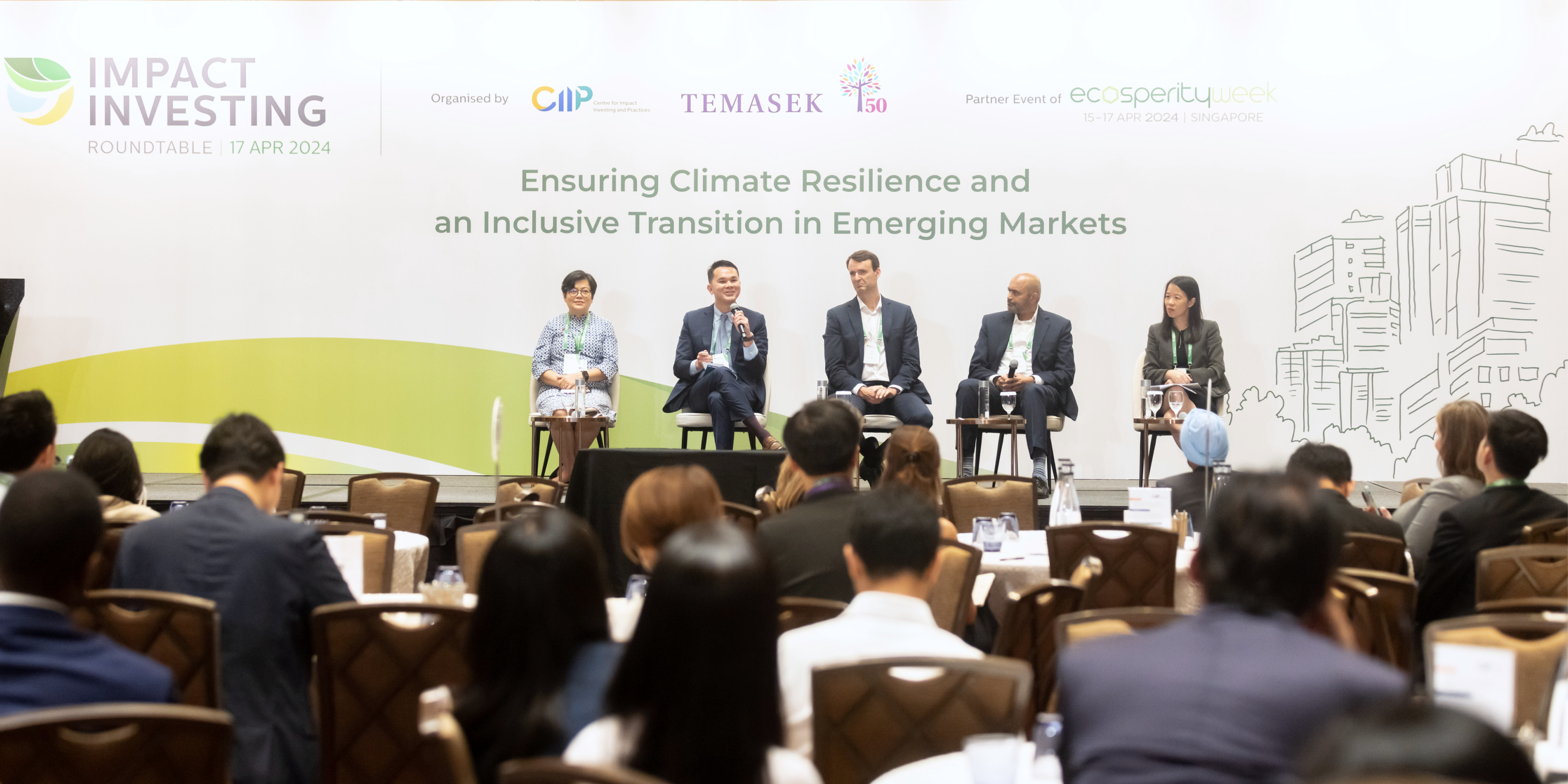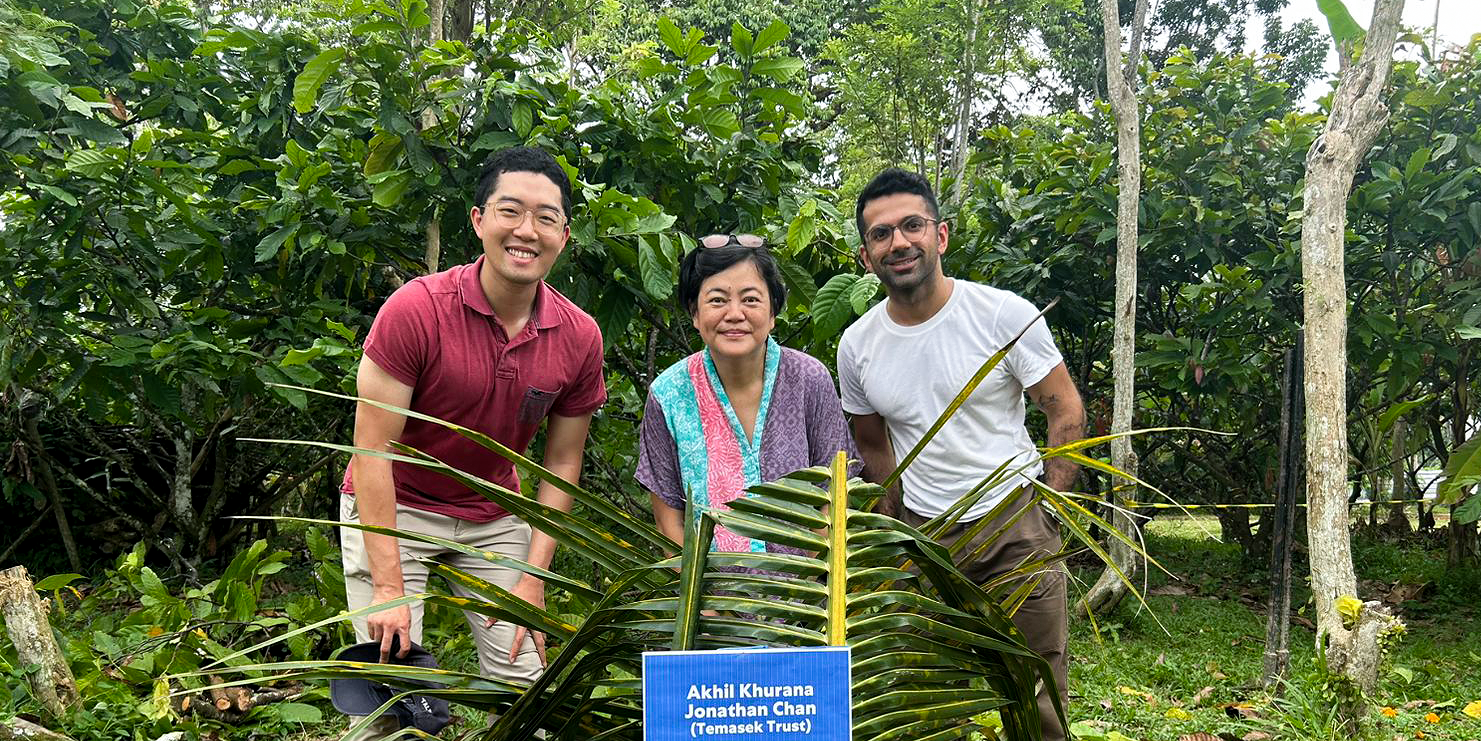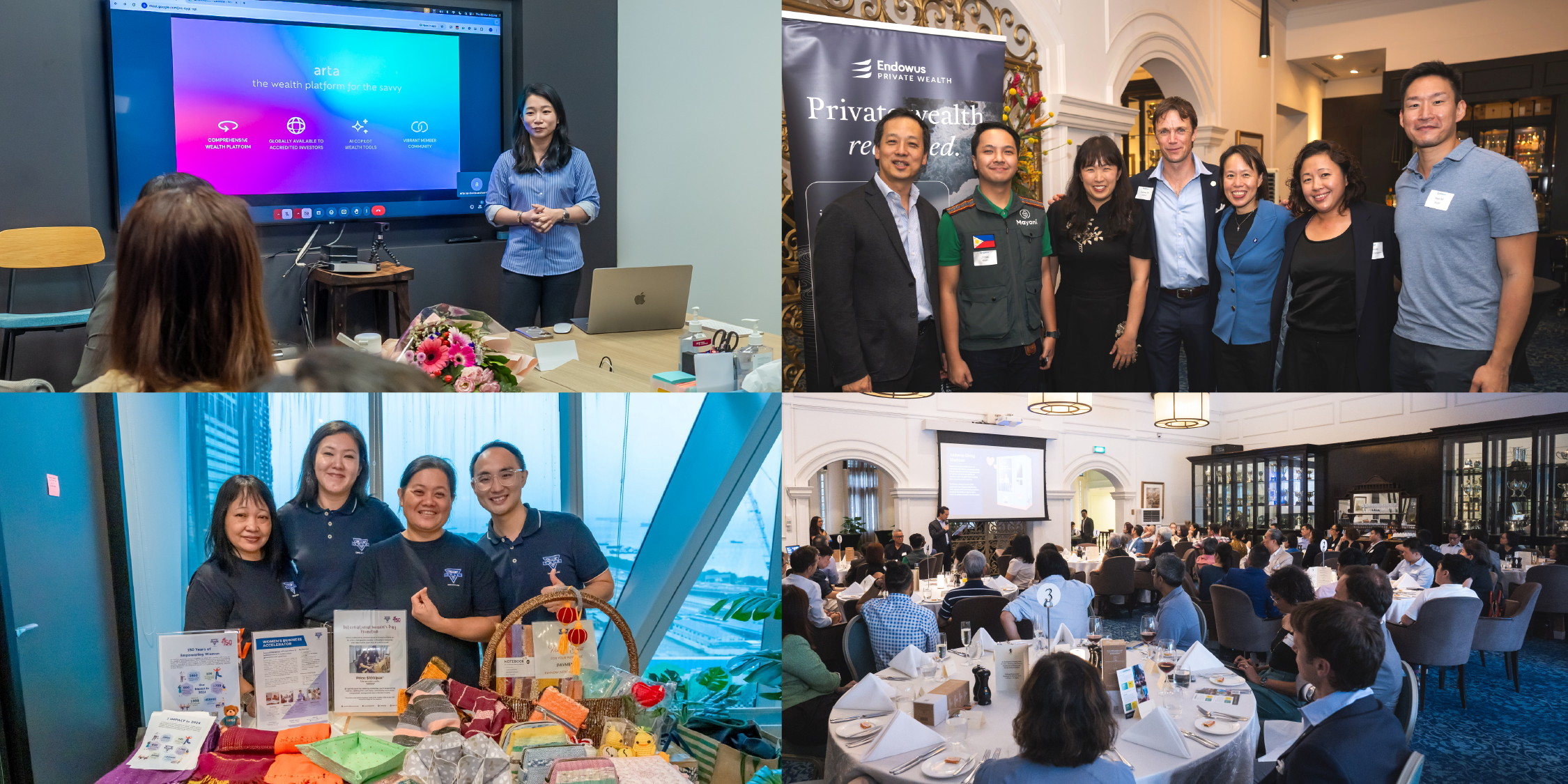Themed “Ensuring Climate Resilience and an Inclusive Transition in Emerging Markets”, this year’s Impact Investing Roundtable organised by Temasek and the Centre for Impact Investing and Practices (CIIP), part of the Temasek Trust ecosystem, enabled meaningful discussions on how energy, mobility, the built environment, and agriculture can transition in such a way that communities can be uplifted in the process, and livelihoods improved.
The Roundtable was a partner event of Temasek’s Ecosperity Week 2024, and gathered close to 180 asset managers and allocators, impact-driven companies, government representatives, and ecosystem builders from over 20 countries.
Conversations centred around business models that benefit both people and the planet, the importance of impact measurement and management, and galvanising collaborative action for impact.
The programme line-up included two panel discussions on climate investing in emerging markets and on uplifting small and medium enterprises (SMEs) for supply chain inclusivity and sustainability. Attendees also had small-group, debate-style roundtable discussions about driving collective action for impact.
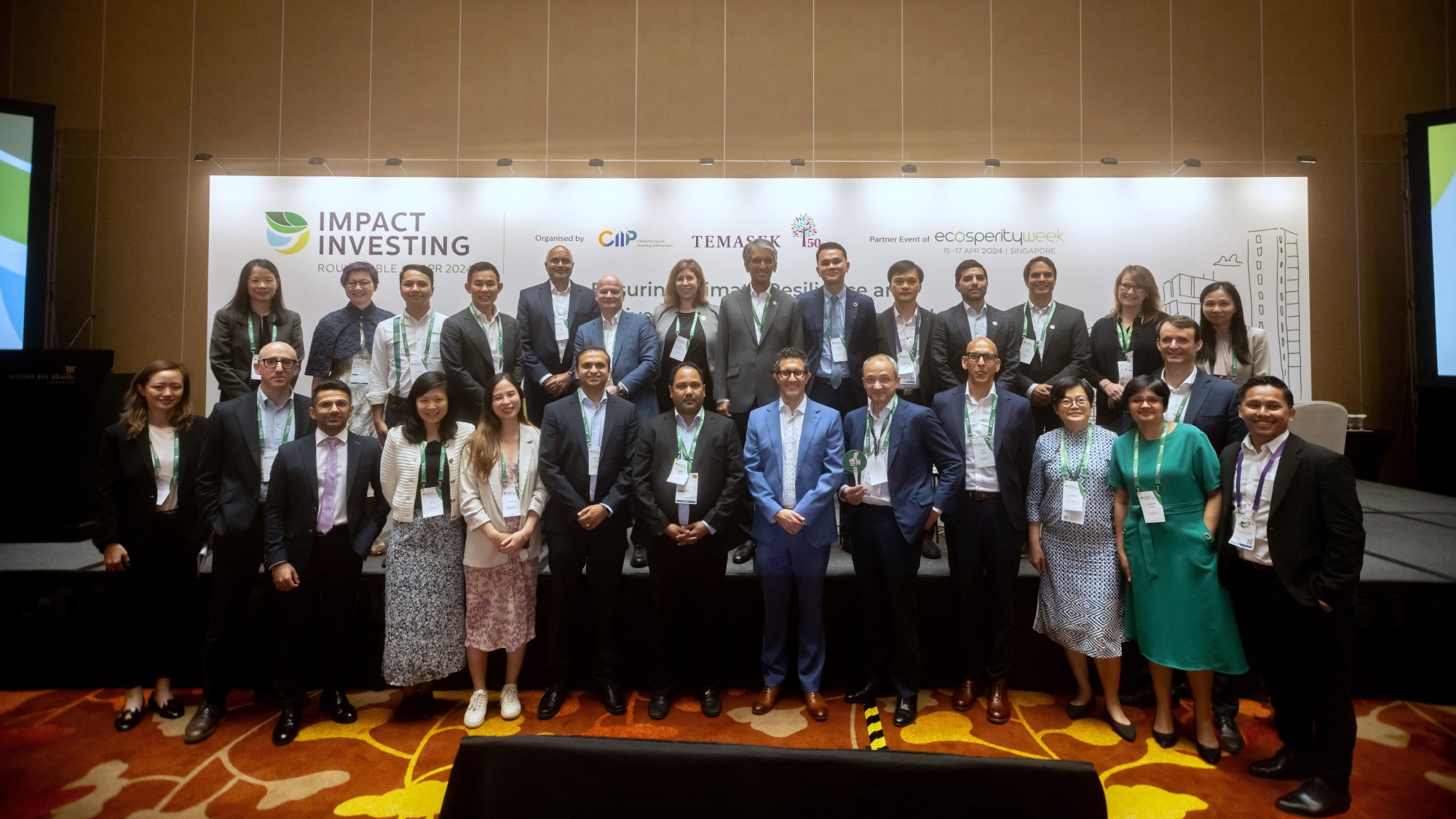
In his opening address, Mr. Desmond Kuek, CEO, Temasek Trust, said impact investing enables catalytic capital to flow to areas of high need and high impact.
To accelerate capital allocation towards impact-driven outcomes, Mr. Kuek encouraged the participants to partner with CIIP and the Philanthropy Asia Alliance on the Amplifier mentorship programme which supports promising impact innovators on their path to financial sustainability, as well as to join the Co-Axis digital catalytic capital marketplace which connects funders with high impact projects.
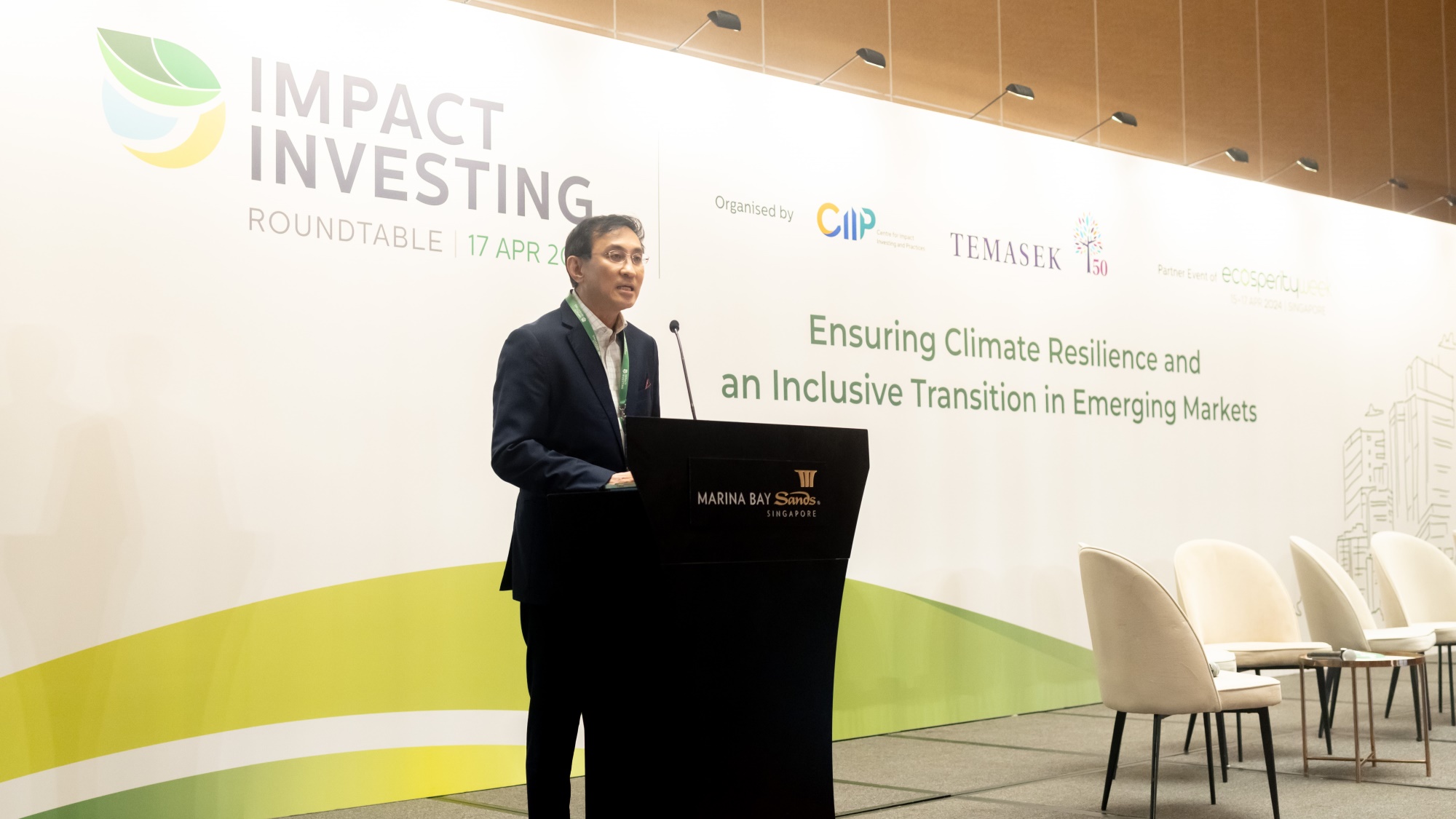
Mr. Desmond Kuek, CEO, Temasek Trust, delivering his opening address at the Roundtable.
Here are more key highlights from the Roundtable:
Investing in climate solutions in emerging markets
The first panel, focusing on climate investing in emerging markets, featured representatives from impact investment firms and their portfolio companies, offering diverse perspectives from both investors and investees.
They shared about risks and opportunities in emerging markets, their experiences with climate investing and innovation, their outlook on the market environment, and how to ensure a just transition while greening the economy.
For instance, the panellists concluded that for an investor looking to invest in impact-driven startups, it is crucial to find one with the right founder or co-founders. This can help ensure not only the authenticity of impact but also the potential to produce superior returns with positive environmental and social outcomes.
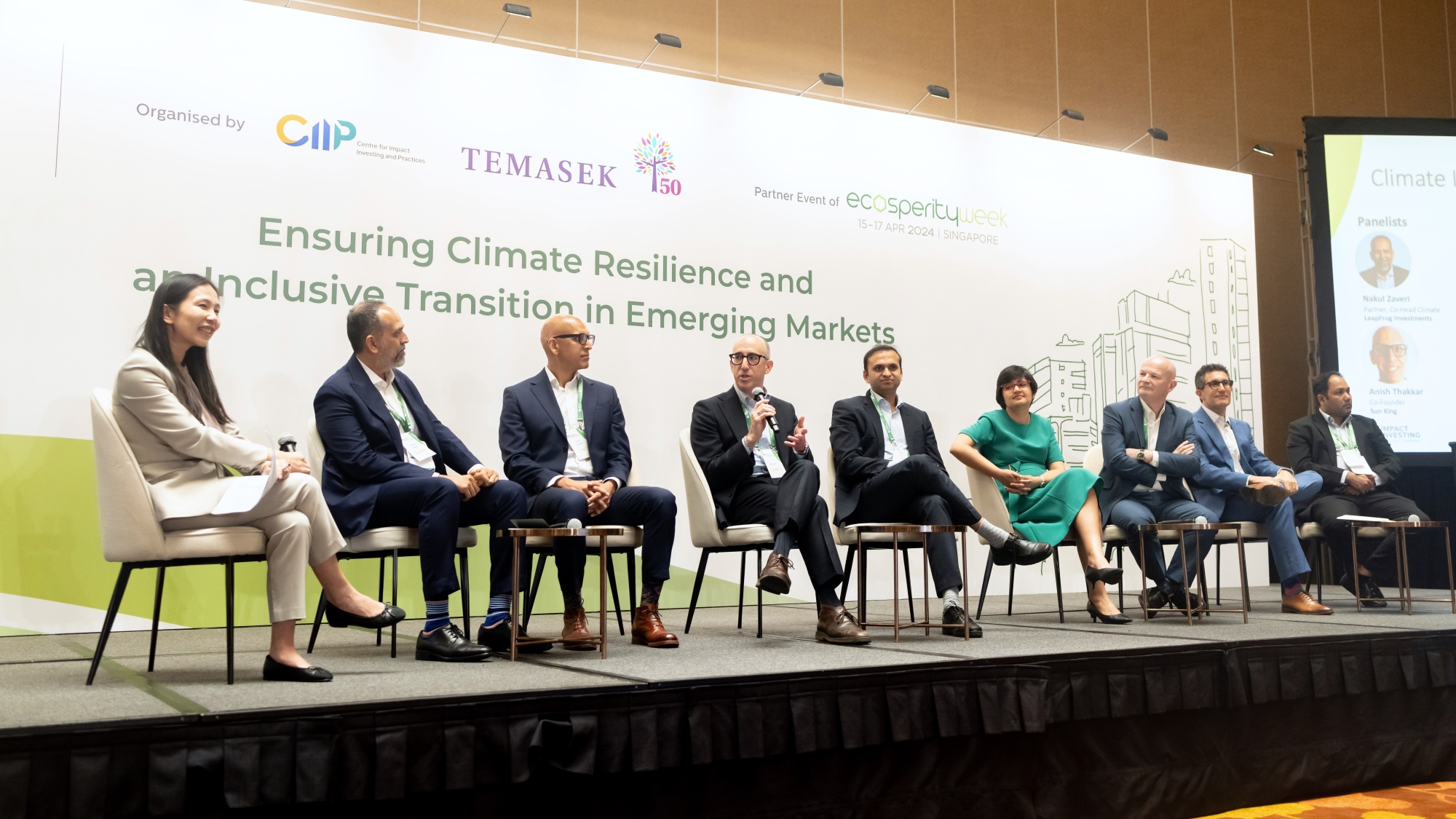
(from left) Temasek's Ms. Eliza Foo; Leapfrog Investments' Mr. Nakul Zaveri; Sun King's Mr. Anish Thakkar; Omnivore's Mr. Mark Kahn, Ecozen's Mr. Devendra Gupta, ABC Impact's Ms. Sugandhi Matta; Iceotope's Mr. David Craig; Circulate Capital's Mr. Rob Kaplan; and Lucro's Mr. Ujwal Desai.
A common theme was the importance of blended finance and finding the right strategic partnerships, especially with local partners. These will help de-risk investments, build supply chains at scale, and develop bankable, scalable projects.
In identifying solutions to address climate-related issues in Asia, it is helpful for investors to look at solutions applied elsewhere in the world and consider how they can be adapted in the Asian context.
Ecosystem players should keep in mind the end goal of empowering lives, so that no one is left behind in the energy transition, the panellists noted.
Building sustainable, inclusive supply chains
Supply chains are undergoing a transformation, influenced not only by geopolitics but also by climate change and the growing number of regulations put in place globally. SMEs who are involved in supply chains are at clear risk of losing business opportunities if they do not evolve, said Ms. Dawn Chan, CEO of CIIP, in her remarks at the Roundtable.
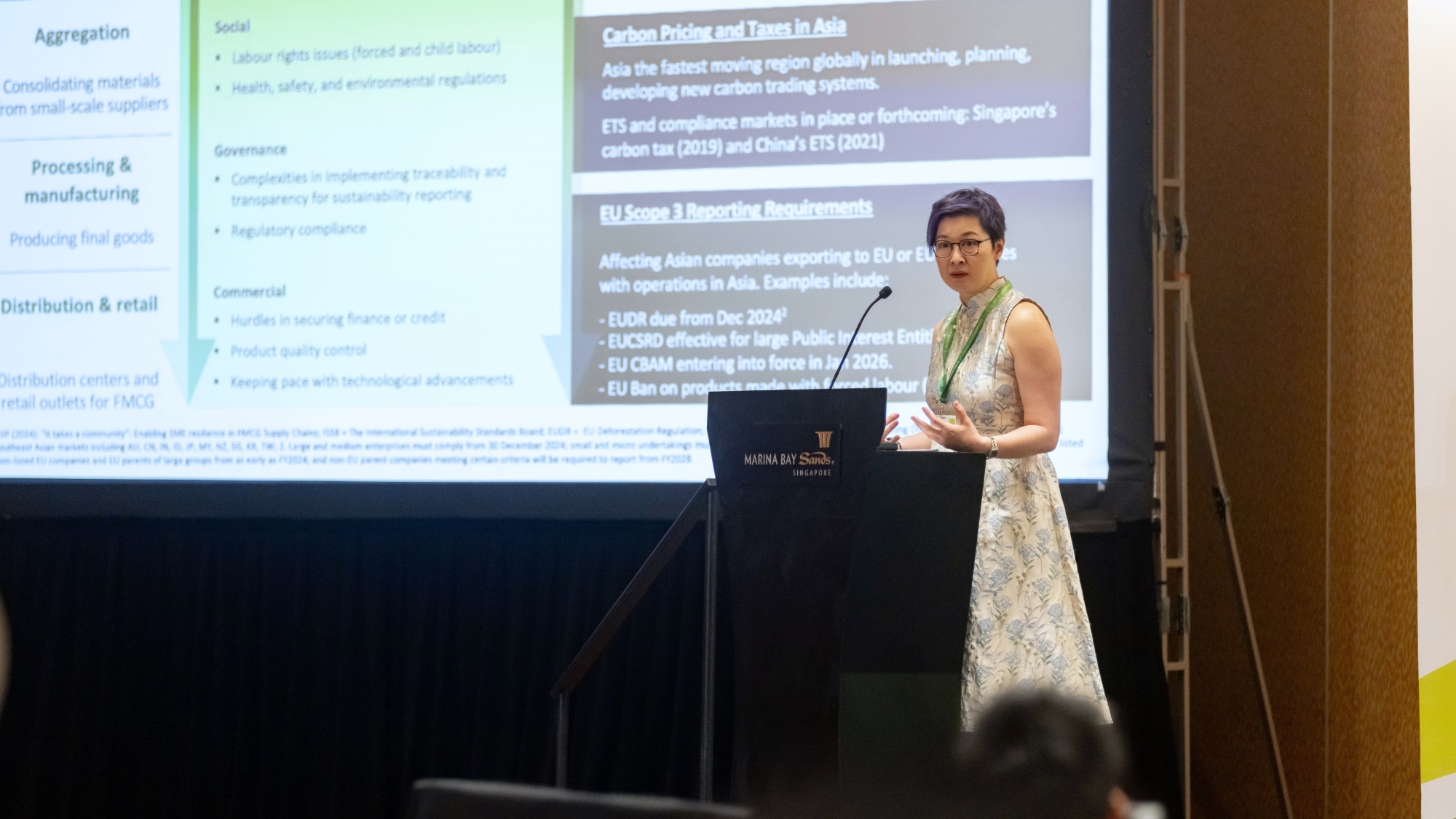
Ms. Dawn Chan, CEO, CIIP, speaking at the event.
A concerted, systems-wide approach with cooperation among different stakeholders is needed to provide holistic support for SMEs and help them develop climate resiliency, she added.
Against this backdrop, CIIP recently launched an introductory report in conjunction with PwC Singapore, shedding light on how SMEs in the fast-moving consumer goods (FMCG) sector from Indonesia, Malaysia, and Singapore are responding to sustainability-related challenges. The report also outlines principles and approaches to help strengthen SMEs’ supply chain resilience.
In a similar vein, the next panel at the Impact Investing Roundtable focused on uplifting SMEs for supply chain inclusivity and sustainability. It included representatives from a multinational corporation (Mars), a startup (GRST), an SME supplier (TAT WIN), and a financial institution (HSBC).
The panellists explored the practical strategies, challenges, and opportunities in building sustainable supply chains that are inclusive.
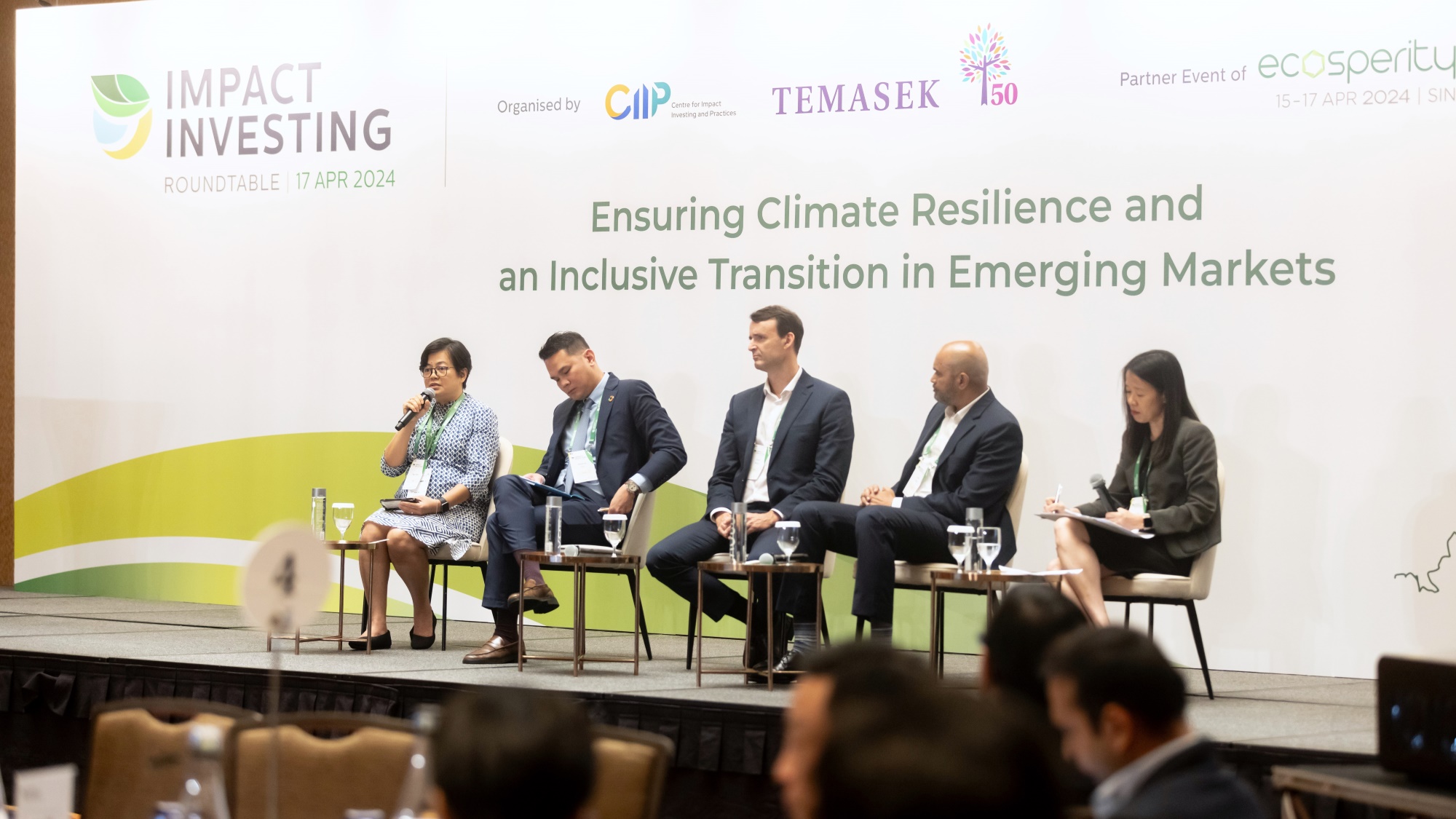
(from left) Ms. Fay Fay Choo, Asia Cocoa Director, Mars; Mr. Keelong Foo, Director, TAT WIN; Mr. Frank Harley, Chief Strategy Officer, GRST; Mr. Sunil Veetil, APAC Head of Commercial Banking Sustainability, HSBC; Ms. Koh Lin-Net, Director, CIIP.
They examined how SMEs can navigate financing challenges and regulatory pressures, the hurdles in integrating environment, social, and governance (ESG) practices into their businesses, and the importance of multi-stakeholder approaches in supporting SMEs in their sustainability journeys.
For example, SMEs and startups face pressures from legislation and customers in accounting for their sustainability performance, and require support in navigating the transition to a more sustainable economy.
Large companies are well-placed to leverage their influence, map supply chains and work with SME suppliers to support capacity building, and establish tools for transparency and traceability.
SMEs should also look at their sustainability and impact journeys through the lens of improving risk and resilience as well as their competitive advantage. Implementing sustainable practices can help open doors to new markets or secure preferential supplier status, the panellists said.
Measuring and managing impact
The Roundtable concluded with a set of debates on impact measurement and accountability, and climate-aligned investments.
Ms. Dean Hand, Chief Research Officer of the Global Impact Investing Network (GIIN), gave a call to action on using impact measurement and management tools and helping build a data-driven evidence base. Ms. Sarah Schwimmer, Co-CEO at B Lab, delivered a presentation on the B Corp movement and the importance of sustainability performance benchmarking for companies.
Two questions were then posed to the attendees for debate-style discussions. They deliberated in small groups before presenting their consensus views.
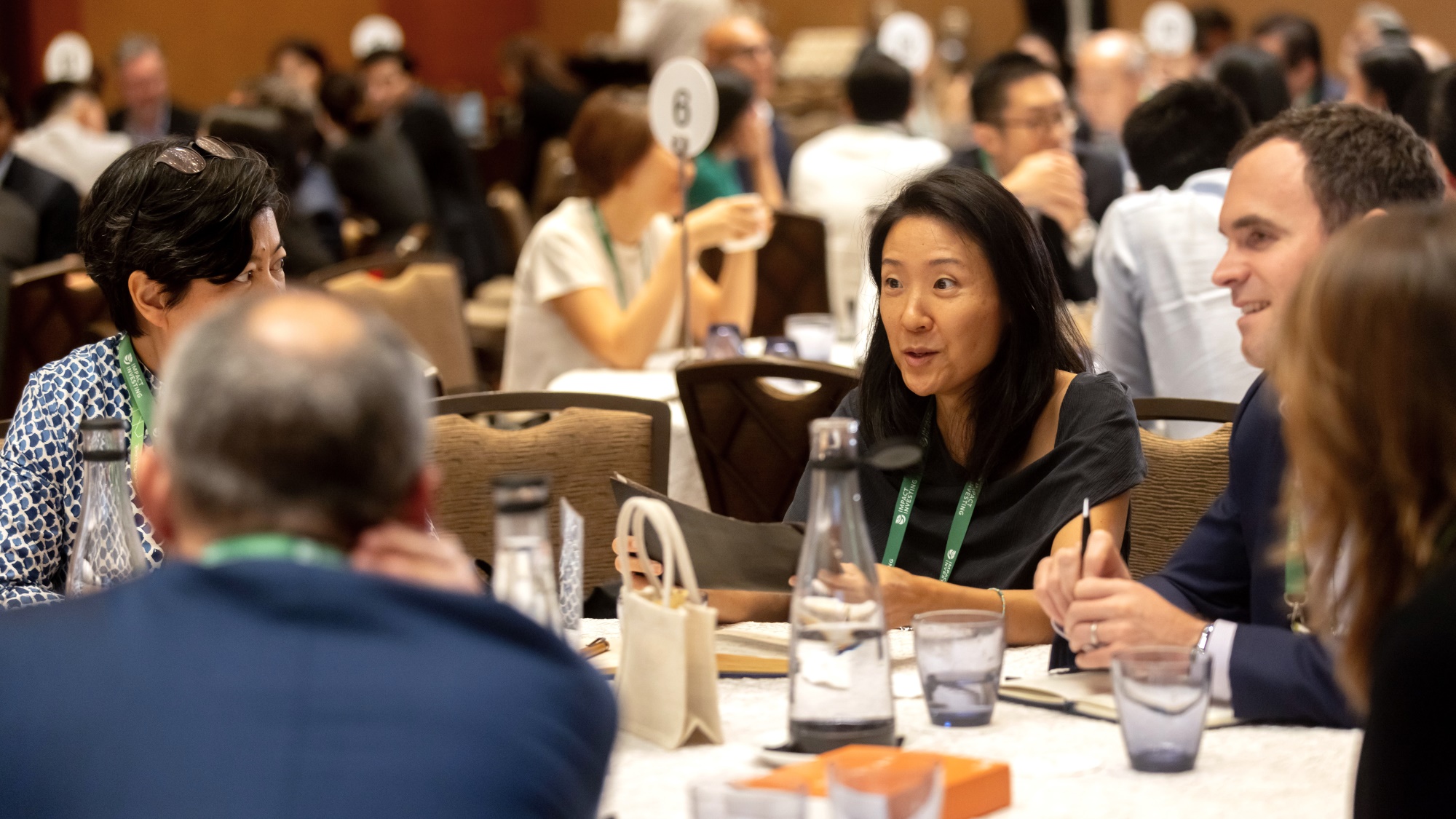
The first motion for debate was on whether the benefits of impact management and measurement generally outweigh the cost, with nine in 10 agreeing.
Key points from the discussion include:
- Investors support impact management but struggle with the best approach, with some methods being too shallow or too resource-intensive.
- Some companies can leverage impact measurement as a strategy to gain a competitive advantage from a regulatory perspective.
- SMEs often have to prioritise their commercial viability over impact reporting; they need to dedicate their resources to figuring out the right use cases, generating revenue, and acquiring customers, and operate using logic models as theoretical foundations for impact.
- If SMEs had sufficient resources or even funding conditional on measurement, this would better enable their abilities to report on impact.
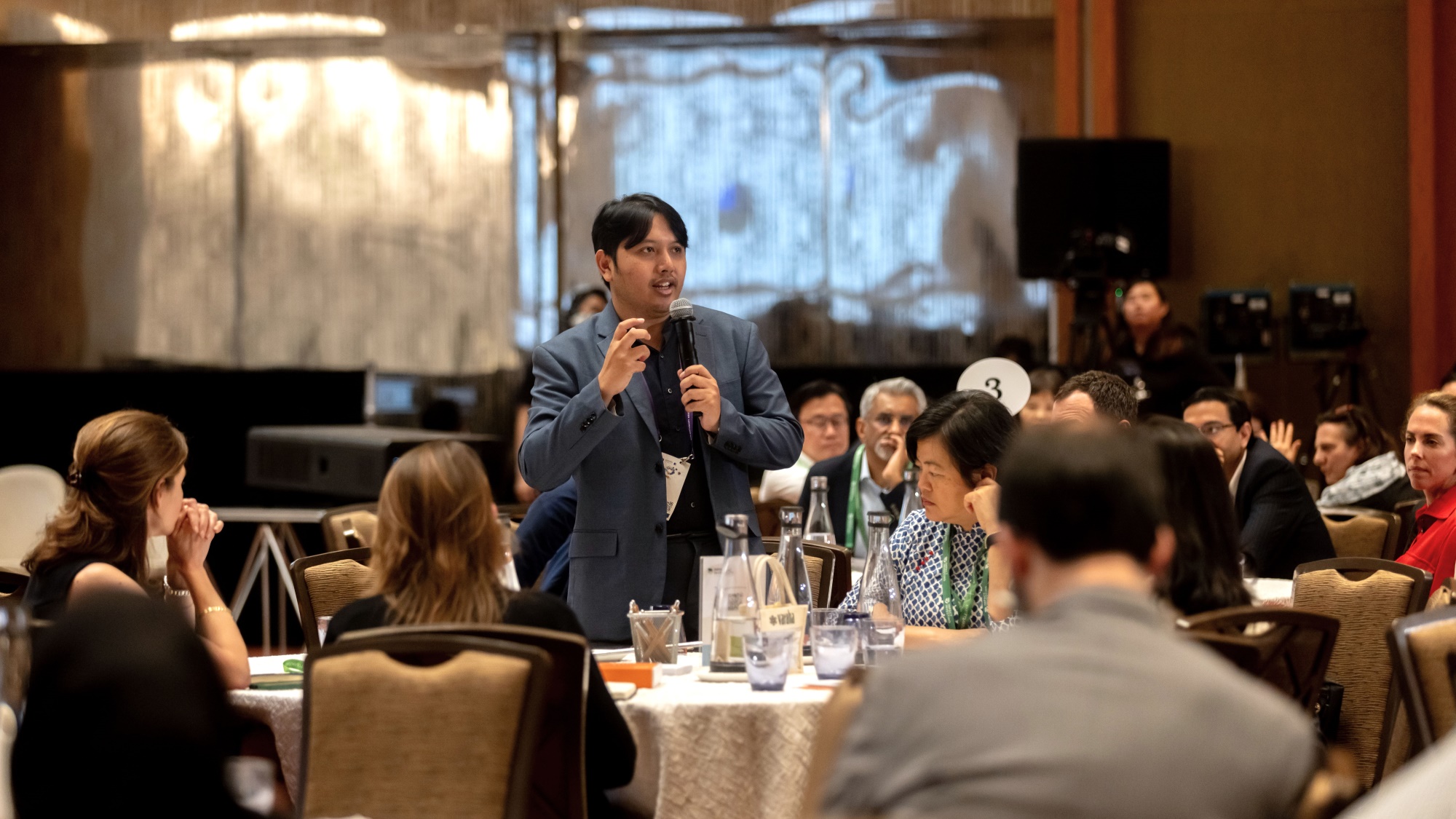
The second motion — which addressed whether we have reached an inflexion point for climate investing in emerging markets — elicited a broad range of responses.
Key points from this discussion include:
- SMEs face the challenge of balancing sustainability goals with commercial considerations. Many consumers remain more excited by lower prices and higher product quality, than by any reduction in emissions. This means sustainability is often seen as just a happy by-product.
- More and more investors are now considering impact investing, though many want to see the startups demonstrating their impact first before they would fund them.
- There is a lack of a pipeline in new innovations and investible companies in the climate space, even though early-stage builders actually have an appetite to invest more. The clarity of outcomes, purpose, and data are key to meet investor demand.
Fostering impact investing in Asia
In his closing remarks at the event, Mr. Benoit Valentin, Head of Impact Investing at Temasek, urged the participants to have the courage to take risks, learn from mistakes, and work towards building a world where every generation prospers.
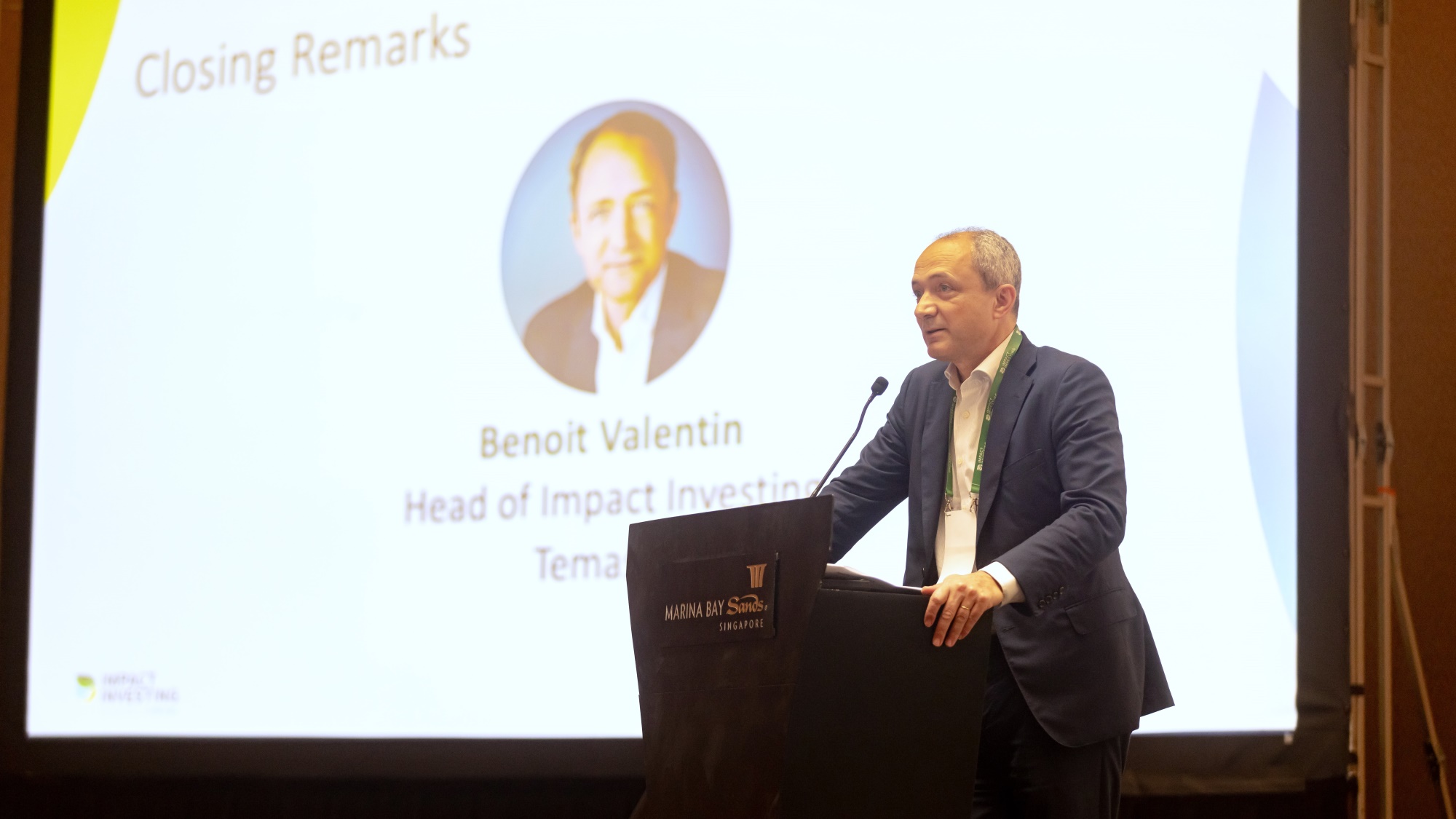
Mr. Benoit Valentin, Head of Impact Investing, Temasek, speaking at the Roundtable.
He highlighted the importance of having clarity of purpose and outcomes as an “antidote to greenwashing”. Mr. Valentin also called on the participants to follow in the footsteps of the pioneers of impact investing.
The Roundtable is unique as it brings together the impact investing ecosystem — including asset owners, asset managers, and entrepreneurs — to share their best practices and concerns and to learn from each other, Mr. Valentin noted.
CIIP is a non-profit entity established by Temasek Trust in 2022 to foster impact investing and practices in Asia and beyond. The Centre aims to contribute towards a sustainable future for all. To learn more, visit CIIP’s website.
For the latest updates on the Temasek Trust ecosystem, follow us on LinkedIn, Facebook, Instagram, and YouTube.
